Hockey world counts down to Switzerland
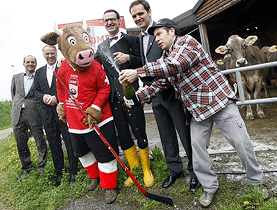
On April 24, the world's top hockey nations descend on the Swiss cities of Bern and Zurich for the 2009 IIHF Ice Hockey World Championship.
swissinfo’s coverage of the tournament, the country’s largest sporting event of the year, features an exciting dossier with live interactive coverage of games, detailed reports and insightful background articles.
It also marks swissinfo’s first foray into Russian.
swissinfo, the international service of the Swiss Broadcasting Corporation, invites you to play a central role in our playoff coverage.
In addition to providing regular post-game reports, swissinfo journalists will be liveblogging games on Twitter.
During the semifinals and finals, fans attending the games and in living rooms around the world will have the opportunity to join swissinfo’s game feed.
It is the first time a broadcaster of a major sporting event will have fans playing a defining role in its coverage.
From your Twitter account, send a message to @swiss_slapshot to join our team. Your tweets will appear on our dossier as Switzerland tries to keep its place in the world’s top eight teams.
Our liveblogging coverage will extend to the semifinals and finals as well.
Seeing red
While the world’s top ice hockey players still have a month to prepare, swissinfo’s journalists are already in the game.
swissinfo’s dossier, launched on March 18, provides profile of Zurich and Bern, the two host cities, information for and about coaches, fans and organisers, and a special Hockey 101 guide for newcomers to the sport.
The dossier will appear in four of swissinfo’s nine working languages – English, German, French and Italian – and will feature the service’s first articles published in Russian, which will gauge demand for swissinfo coverage in Russian.
This year Russia will try to defend its title against strong teams from Canada, Sweden, Finland, the United States and the Czech Republic. But for Swiss fans, the question will be how far their team can progress.
Switzerland has steadily climbed the world rankings during the tenure of coach Ralph Krueger and stands seventh.
The world’s 16 top teams will face off over 56 games in Bern’s PostFinance Arena and Zurich’s Kolping Arena. The newly renovated PostFinance Arena is Europe’s largest hockey venue, although its capacity for the tournament has been reduced to 12,000. The arena in Zurich will host 7,000 spectators.
Strongholds
The host cities are Switzerland’s two hockey strongholds. The Zurich Lions have been the country’s best team in recent years culminating with their victory in January of the European championship.
What the 16,000 Bernese fans who pack into that city’s arena lack in success they make up for in spirit, having the reputation of being the most enthusiastic fans in Europe.
But all is not rosy. Switzerland’s hosting of the European football championship in 2008 set some high standards and organisers say there is not as much demand for hockey as for football.
Some 90 per cent of the tournament’s SFr31 million ($26.2 million) budget will come from ticket sales.
“We are direct victims of the economic crisis,” said tournament organiser Gian Gilli at a press conference Monday in Bern.
By the end of February, 211,000 of the 450,000 tickets had sold. Organisers hope to sell 300,000 seats before the tournament begins.
swissinfo
The 2009 Ice Hockey World Championship takes place from April 24 to May 10 in Bern and Zurich.
Over 300,000 spectators are expected to attend and another 800 million will watch on television.
It is the tenth time Switzerland has hosted the tournament.
Preliminary round
The tournament’s 16 teams are split into four groups of four. Each team plays three matches in round robin play. The top three from each group move to the qualifying round.
Qualifying round
The remaining twelve teams are divided into two groups of six. Each team has to play three games within their group.
Quarterfinal
The top four teams from each group make it to the quarterfinal. The bottom two teams from each group are eliminated.
Semifinal
The top four teams from the quarterfinal move to the semifinal.
Bronze medal game
The two losers of the semi-final games face off.
Final
The winners of the semi-final round play the tournament’s final match.

In compliance with the JTI standards
More: SWI swissinfo.ch certified by the Journalism Trust Initiative
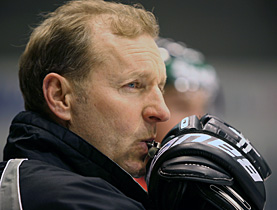
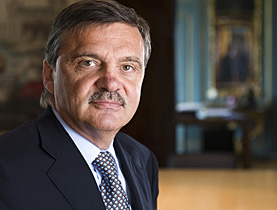
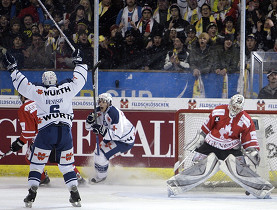
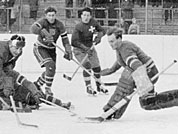
You can find an overview of ongoing debates with our journalists here. Please join us!
If you want to start a conversation about a topic raised in this article or want to report factual errors, email us at english@swissinfo.ch.